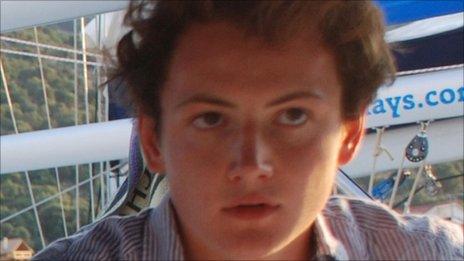Horatio Chapple: Inquest for polar bear death boy
- Published
Horatio Chapple death: Mother 'worried about polar bears'
The family of an Eton schoolboy who was killed by a polar bear say they hope "the truth will be established" at an inquest into his death.
Horatio Chapple, 17, from Salisbury, died on an expedition to Svalbard in Norway organised by the British Schools Expedition Society (BSES) in 2011.
His family have raised "a number of serious criticisms about the manner in which the expedition was conducted".
An independent report has been published to coincide with the inquest.
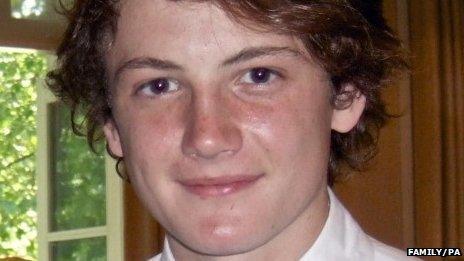
Horatio Chapple was mauled to death by a polar bear during an Arctic expedition
The Chanzin Inquiry Report was ordered by BSES - which is now called British Exploring - a month after Horatio's death.
It was carried out by former High Court Judge Sir David Steel and completed in 2012, but its publication was delayed at the request of Horatio's parents.
'Unfaltering courage'
The Chapple family said in a statement - released before the start of the inquest into Horatio's death and before the report's findings were made public - that they "accept some of the conclusions in the Steel report".
However, they said they "do not believe the account of Horatio's death to be accurate".
They said they hoped the coroner's "independent investigation" would ask the "necessary questions" and "the full facts [are] set out so that the truth can be established".
The statement added that "above all the family wish to honour Horatio's unfaltering courage".
Horatio was asleep in a tent when the bear attacked him in August 2011. Four others were hurt before the animal was shot dead by one of the group leaders.
The injured men were trip leaders Michael Reid, 29, from Plymouth and Andrew Ruck, 27, who is from Brighton but lives in Edinburgh, and trip members Patrick Flinders, 17, from Jersey, and Scott Bennell-Smith, from Cornwall, 16.
An investigation by Norwegian officials ruled that teenager's death resulted from "a number of unfortunate circumstances" and stressed the BSES had not acted negligently under criminal law.
- Published30 September 2012
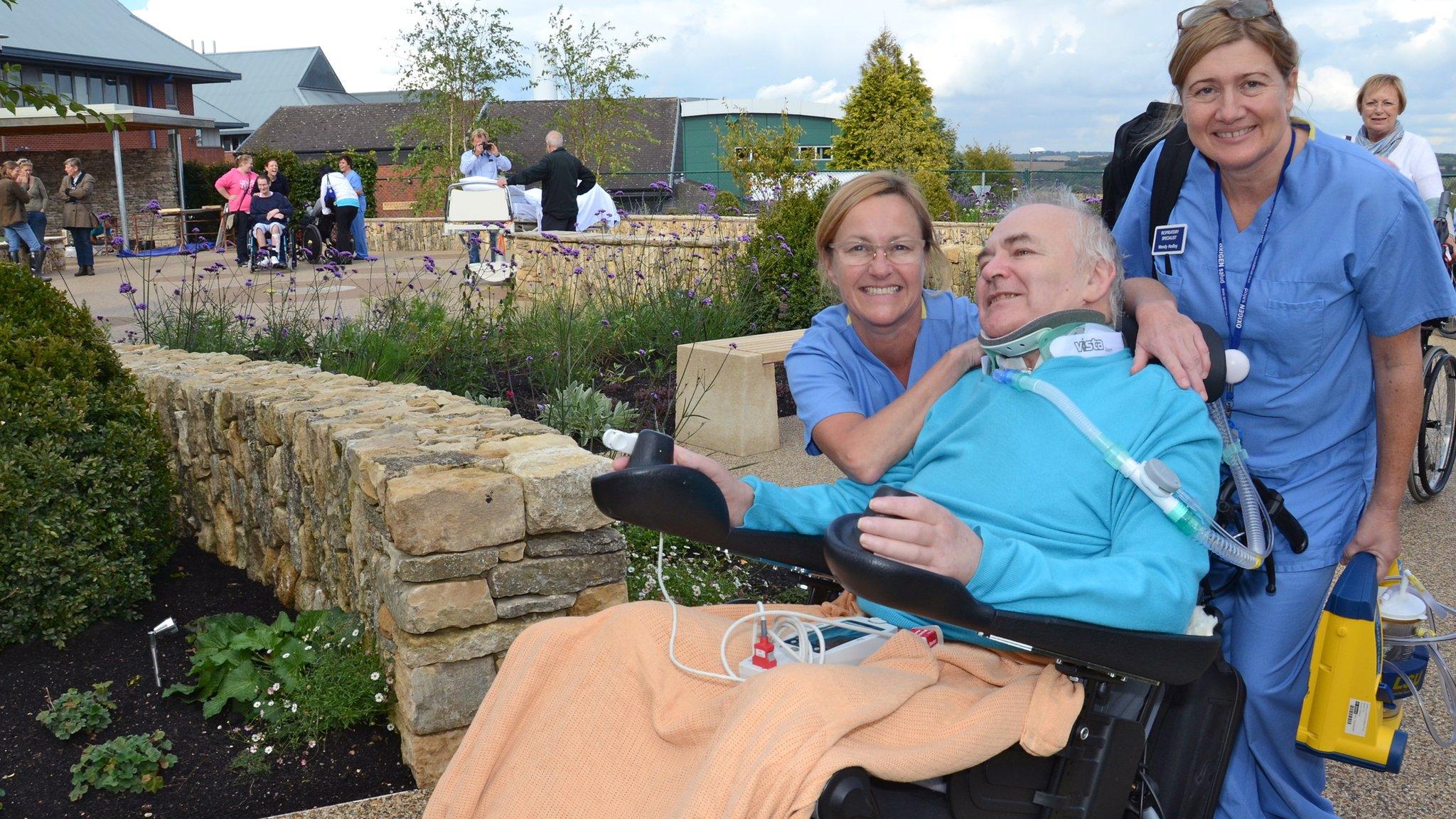
- Published2 March 2012
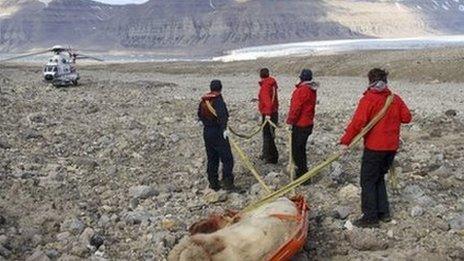
- Published26 August 2011
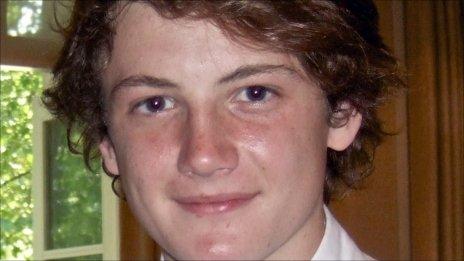
- Published9 August 2011
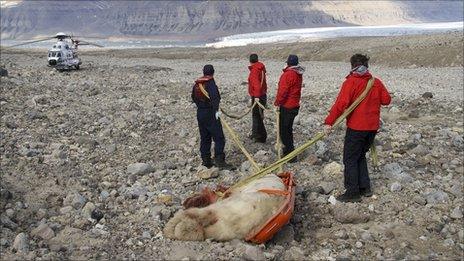
- Published6 August 2011
- Published5 August 2011
